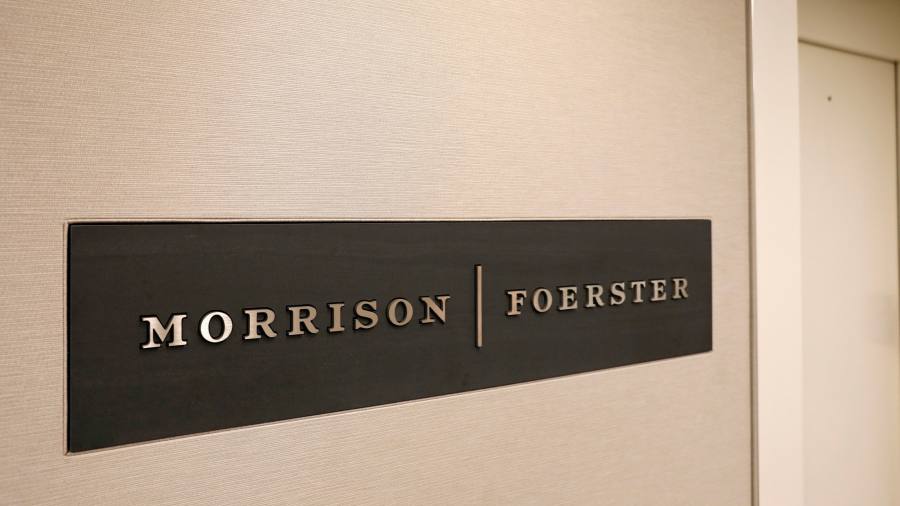
Receive free Legal services updates
We’ll send you a myFT Daily Digest email rounding up the latest Legal services news every morning.
A global law firm at the heart of a battle over corporate affirmative action schemes has quietly altered the recruitment criteria for its flagship diversity fellowship, removing passages that expressed a preference for applicants from “historically under-represented” backgrounds.
Morrison Foerster was one of two firms sued last month in a new campaign by conservative activist Edward Blum following his landmark Supreme Court victory over US colleges’ affirmative action programmes in June.
The lawsuit alleged that Morrison Foerster’s “Keith Wetmore 1L Fellowship for Excellence, Diversity and Inclusion” — which has been in place for more than a decade — illegally excluded applicants based on their race.
It cited application criteria on Morrison Foerster’s site that specified the firm wanted applicants for the fellowship who were “African American/Black, Latinx, Native Americans/Native Alaskans, and/or members of the LGBTQ+ community” and a flyer that said the scheme was open to members of an “historically under-represented group in the legal profession, including racial/ethnic minority groups and members of the LGBTQ+ community”.
However those references no longer appear on Morrison Foerster’s website, and a new flyer specifies only that applicants for the $50,000 award demonstrate “commitment to promoting diversity, inclusion and accessibility”. The flyer’s metadata shows it was created a day after Blum’s organisation appealed for a preliminary injunction against the scheme.
Morrison Foerster did not respond to requests for comment. Perkins Coie, another firm sued over its diversity scheme, has to date not removed references to its fellowship being open to those from a “group historically under-represented in the legal profession, including students of colour, students who identify as LGBTQ+ and students with disabilities”.
The suits against Morrison Foerster and Perkins Coie are the opening salvo in a new war over the legality of affirmative action schemes, which Blum said could prompt further challenges to law firms and larger corporations.
Blum told the Financial Times in an earlier interview he had focused his latest efforts on the legal profession because lawyers “have been blessing . . . corporate diversity quotas” instituted after the murder of George Floyd.
If law firms “are compelled to open these internships up to all races and ethnicities, then it must follow . . . that corporations that have had nearly identical racially exclusive quota programmes in their employment endeavours must also end their practices”, Blum said.
The legal sector has also come under attack from conservative lawmakers across the US, with Republican senator Tom Cotton warning dozens of firms in July to “preserve relevant documents in anticipation of investigations and litigation” over race-based employment practices.
Last week five Republican attorneys-general warned leading US firms to “immediately terminate any unlawful race-based quotas or preferences” or risk being “held accountable — sooner rather than later”.